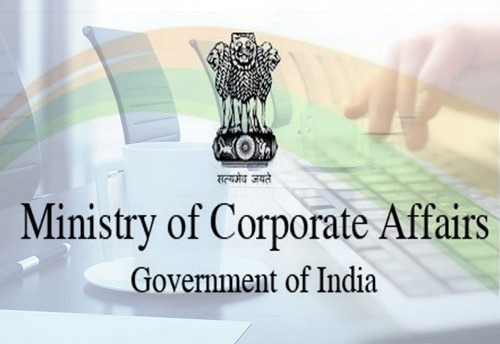Sanjay K. Agrawal, J
1. The substantial question of law involved, formulated and to be answered in this second appeal preferred by defendant No. 1 states as under:-
Whether the Lower Appellate Court was not justified in passing a decree for declaration of ownership of the suit land in view of the provisions of
Section 57 (2) & (3) of the M.P. Land Revenue Code and impliedly the civil jurisdiction would be barred ?
(For the sake of convenience, parties would be referred hereinafter as per their status and ranking shown in the suit before the trial Court.)
2. The sole plaintiff - Namita Mirdha filed a civil suit for declaration of title and permanent injunction stating inter alia that the suit land was granted to
her in 'Bhoomi Swami' right by order of the Tahsildar dated 20/03/1995 in a duly constituted revenue proceeding. Defendants No. 1 to 3 filed an
application for setting aside the order passed by the Tahsildar, which was allowed by the Sub-divisional Officer, who revoked the order of the
Tahsildar, by his order dated 11/07/2001 (Ex. D4C), which is illegal and bad in law as the Sub-divisional Officer did not have the jurisdiction to do so
and which led to the filing of the civil suit by the plaintiff on 25/06/2002, after serving notice to the Sub-divisional Officer under Section 80 of the CPC,
which was opposed by the defendants by filing their written statement denying the plaint allegations.
3. Learned trial Court, after appreciating oral and documentary evidence on record, dismissed the civil suit filed by the plaintiff vide judgment and
decree dated 16/01/2004, finding no merit, against which the plaintiff preferred an appeal under Section 96 of the CPC, wherein learned first appellate
Court interfered with the judgment and decree of the trial Court and granted decree in favour of the plaintiff by judgment and decree dated 30/12/2005
declaring that the order dated 11/07/2001 passed by the Sub-divisional Officer (Ex. D4C) is without jurisdiction and without authority of law.
4. Being aggrieved by the judgment and decree dated 30/12/2005 passed by the first appellate Court, this second appeal has been preferred by
defendant No. 1 in which substantial question of law has been formulated and set out in the opening paragraph of this judgment.
5. Mr. Subhash Yadav, learned counsel appearing for the appellant/defendant No. 1 would submit that the suit filed by the plaintiff was apparently
barred in view of the provisions contained under Section 57 (2) and (3) and 257 (f) of the M.P./C.G. Land Revenue Code, 1959 (hereinafter, referred
to as 'the Code').
6. Mr. Parag Kotecha, learned counsel for respondent No. 1/plaintiff would support the impugned judgment and decree passed by the first appellate
Court.
7. I have heard learned counsel for the parties, considered their rival submissions made herein-above and went through the records with utmost
circumspection.
8. The suit land bearing khasra Nos. 1287 and 1288 area 0.09 and 0.95 hectares were granted to the plaintiff in 'Bhoomi Swami' right by the Tahsildar,
in a duly constituted revenue proceeding, vide order dated 20/03/1995, which was revoked by the Sub-divisional Officer, by his order dated 11/07/2001
(Ex. D4C), on a complaint/application filed by defendants No. 1 to 3, by his order dated 11/07/2001 (Ex. D4C), which was challenged by the plaintiff
in civil suit No. 13A/2002.
9. The civil suit filed by the plaintiff stood dismissed by the trial Court against which civil appeal No. 13A/2004 was preferred by the plaintiff. Learned
first appellate Court granted decree of declaration of title and permanent injunction in favour of plaintiff.
10. The suit filed by the plaintiff was basically for declaration of title and permanent injunction, particularly against the order of the Sub-divisional
Officer dated 11/07/2001 (Ex. D4C) declaring it to be null and void. At this stage, it would be appropriate to notice Section 57 (2) and (3) of the Code,
which reads as under :-
57. State ownership in all lands. - (1) XXX XXX XXX (2) Where a dispute arises between the State Government and any person in respect of any
right under sub-section (1) such dispute shall be decided by the [State Government] / [Collector].
(3) Any person aggrieved by any order passed under sub-section (2) may institute a civil suit to contest the validity of the order within a period of one
year from the date of such order.
11. The question is whether in this civil suit, the jurisdiction of Civil Court was barred by Section 257 (f) of the Code which provides for exclusive
jurisdiction of revenue authorities as under :-
257. Exclusive jurisdiction of revenue authorities. - Except as otherwise provided in this Code, or in any other enactment for the time being in force,
no Civil Court shall entertain any suit instituted or application made to obtain a decision or order on any matter which the State Government, the Board,
or any Revenue Officer, is by this Code, empowered to determine, decide or dispose of, and in particular, no Civil Court shall exercise jurisdiction over
any of the following matters :-
 (a) XXX      XXXX              XXX
 (b) XXX     XXXX               XXX
 (c) XXX     XXXX               XXX
 (d) XXX     XXXX               XXX
 (e) XXX      XXXX              XXX
(f) any claim against the State Government to have any entry made in any land records or to have any such entry omitted or amended.
12. The instant suit was not a suit or claim against the State Government to have any entry made in or any land records or to have any such entry
omitted or amended within the meaning of Section 257 (f) of the Code, and as such, it was a bare suit for declaration of order dated 11/07/2001 (Ex.
D4C) passed by the Sub-divisional Officer, as null and void.
13. The Supreme Court, in the matter of Rohini Prasad & Ors. Vs. Kasturchand & Anr. (2000) 3 SCC 668, has held that the jurisdiction of the Civil
Court is not barred under Section 257 (f) of the Code in respect of the question of title and has relied upon the Full Bench decision of Madhya Pradesh
High Court, in the matter of Ramgopal Vs. Chetu , which is quoted herein under :-
8. ...A Full Bench of the Madhya Pradesh High Court in Ramgopal v. Chetu was considering the question whether the Civil Court cannot take
cognizance of a suit instituted by Bhumiswami on the basis of his title against the trespassers. The Full Bench repelled the argument that in
proceedings under Section 250 of the Code, since the Revenue Authority has no jurisdiction to go into the question of title, it would lead to anomalous
results if again it is held that the Civil Court has jurisdiction to decide any question relating to the title.
.... In three different appeals coming to the Madhya Pradesh, Hon'ble Judges sitting singly have consistently held that the civil suit of possession based
on title is triable by the Civil Court. That being the law laid by the High Court of Madhya Pradesh while interpreting the Code which applies to the
State of Madhya Pradesh and held the field for all these years, it is not desirable for the Supreme Court to give a different interpretation and to upset
the settled law. Merely because a different view is possible and that on that ground the decision of the High Court is erroneous, in our view, should not
be a ground to interfere. Law should be certain and parties should know where they stand. We have already said that the finding of the First Appellate
Court on reading of the evidence was perverse and the High Court rightly interferes to upset the same. As a matter of fact there was no evidence to
come to the conclusion that Rohini Prasad was in possession of the land in continuation or renewal of the lease after expiry of the year 1975-76.
14. Reverting to the facts of the present case, in light of the aforesaid decision, it is quite vivid that jurisdiction of Civil Court was neither barred under
Section 57 (3) nor Section 257 (f) of the Code, and particularly, when the plea of jurisdiction of the Civil Court was never raised by defendant No. 1,
either before the trial Court or before the first appellate Court. Even otherwise, this question cannot be permitted to be raised for the first time, though
it has already been held that the jurisdiction of the Civil Court was not barred by Section 57 (3) or by Section 257 (f) of the Code. As such, I do not
find any merit in this second appeal.
15. The second appeal deserves to be and is accordingly dismissed. No order as to cost(s).
16. A decree be drawn up accordingly.

